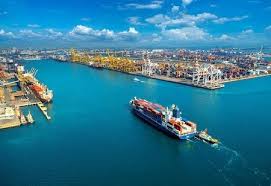The Trump Administration threatens shipping, visa, and trade penalties against countries supporting the IMO NZF plan.

Tensions are rising ahead of next week’s key global climate vote, as the Government of the United States has issued a strong warning to countries supporting the Net Zero Framework (NZF) at the upcoming International Maritime Organization’s Marine Environment Protection Committee (MEPC) meeting scheduled from 14 to 17 October.
The Trump Administration has threatened a raft of economic and shipping-related penalties, including blocking vessels, imposing additional port fees, and tightening visa rules for states voting in favour of the NZF, which seeks to establish a global carbon levy to push the maritime sector toward net-zero emissions.
A joint statement released on 10 October by US Secretary of State Marco Rubio, Secretary of Energy Chris Wright, and Secretary of Transportation Sean Duffy outlined five possible measures targeting nations backing the NZF. These include:
- Blocking vessels registered with flag states supporting the framework.
- Additional port fees for ships owned, operated, or flagged by those states.
- Visa restrictions, mandatory interviews, and quotas for crew visas.
- Commercial penalties on shipping-related US government contracts involving flagged vessels.
- Sanctions on officials sponsoring “activist-driven climate policies.”
“President Donald Trump has made it clear that the United States will not accept any international environmental agreement that unduly or unfairly burdens the United States or harms the interests of the American people,” the statement said. It further labelled the NZF a “European-led neo-colonial export of global climate regulations” and vowed to impose costs on countries supporting it.
The NZF requires a two-thirds majority vote from IMO member states at the extraordinary MEPC session. With the vote set for 17 October, the diplomatic climate has turned increasingly charged, as Washington pushes to sway opinions away from the carbon pricing proposal.
The outcome of the vote could have far-reaching implications for global shipping, climate policy, and trade relations, as member states weigh the benefits of coordinated decarbonisation efforts against potential US retaliation.
Source: Seatrade Maritime News










